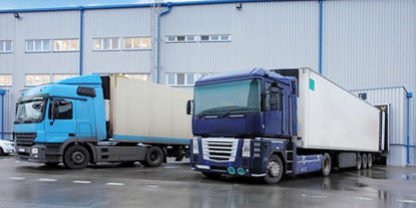Container Freight Station (CFS) warehouses are bonded facilities that act as temporary storage for goods that are entering and leaving the country. They should be distinguished from Free Trade Zone (FTZ) warehouses that allow for long term storage of goods in transit. CFS warehouses serve an important role in both air and ocean freight.
Air Freight: Prior to loading cargo onto an airplane, freight must be stored in an airport warehouse. The airport warehouse can be directly managed by the airline or by a 3rd party CFS warehouse operator. When goods arrive at the destination airport, the goods again need to be taken to a CFS warehouse to be held until proper Customs documentation is provided to release the cargo to the public.
Airport CFS warehouses both at the origin and destination may have fees. In the United States, when goods arrive via airfreight, the airline CFS warehouse will charge an ISC (Import Service Charge). The ISC over the years has risen in cost with many warehouses now charging between $40-$60.
Ocean Freight: CFS warehouses are primarily used in ocean freight for LCL (Less than Container Load) cargo. At the port of origin, LCL cargo must be consolidated and loaded into a container at a bonded facility. This is the primary use of a CFS warehouse at the port of origin. CFS warehouse fees are typically based on size and/or weight.
Once LCL ocean cargo arrives at the destination port, the container must be brought to another CFS warehouse for unloading and segregation of goods. The CFS warehouse at the destination warehouse will again have fees they charge for their services.
CFS Warehouse Fees can vary widely: Importers should be extremely cautious with CFS warehouse fees, particularly for ocean LCL freight. Even if the container is going to same CFS warehouse, two different freight forwarder consolidators can have different agreements with the CFS warehouse. This can result in different CFS warehouse fees despite the use of the same CFS warehouse. When in doubt, try to ask and confirm the destination CFS warehouse fees ahead of time.



